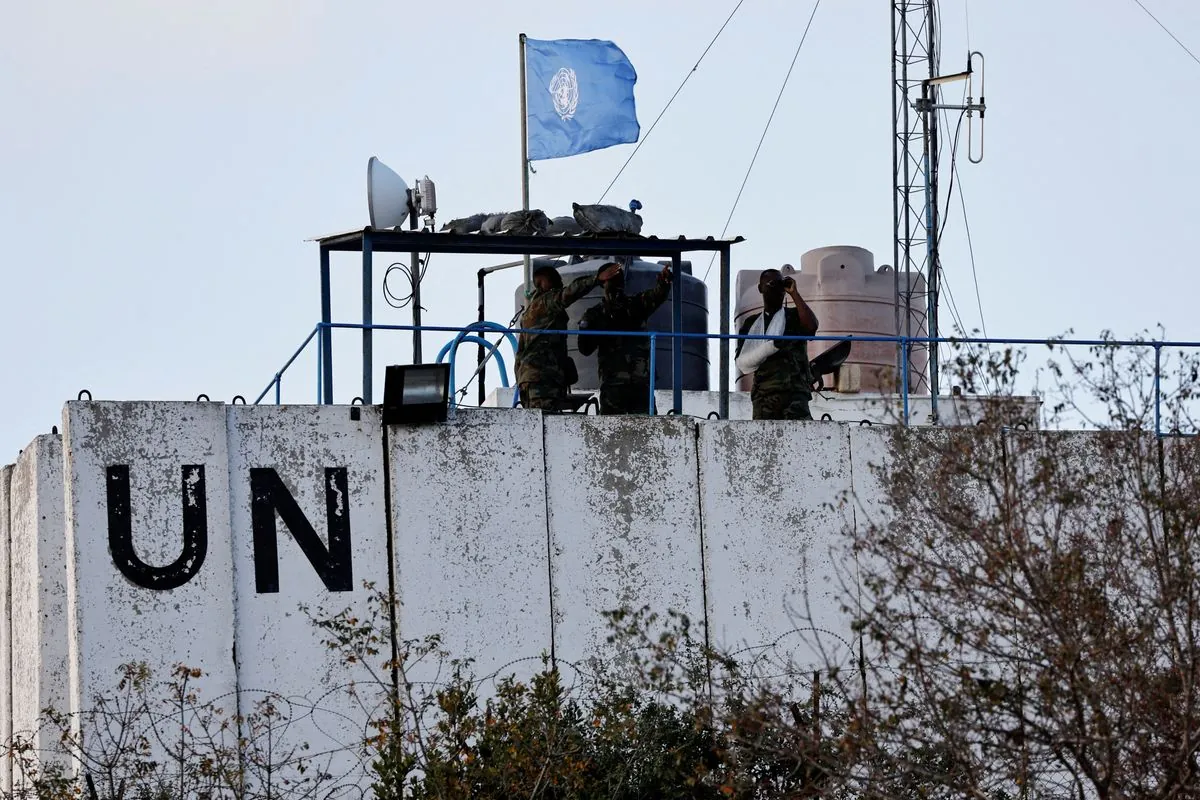Spanish FM Urges Israel to Halt Lebanon Raids Amid Escalating Tensions
Spanish Foreign Minister calls for cessation of Israeli ground operations in southern Lebanon, citing worrying information. He emphasizes the need for a truce in Lebanon and a ceasefire in Gaza amid rising regional tensions.

In a recent statement, Jose Manuel Albares, Spain's Foreign Minister, has called for an immediate halt to Israel's ground operations in southern Lebanon. This appeal comes amidst escalating tensions in the region, with intense fighting reported between Israeli forces and the Iran-backed Hezbollah group.
Albares expressed concern over the situation, stating, "We insist that the ground incursion should be halted, as we're receiving very worrying information." He emphasized the urgent need for a truce in Lebanon and a ceasefire in Gaza, highlighting the potential for further regional destabilization.
The Spanish diplomat's comments follow reports of Israeli paratroopers, commandos, and armored units launching raids in southern Lebanon. This ground incursion comes in the wake of devastating airstrikes that reportedly eliminated key Hezbollah leadership, including the group's longtime chief, Hassan Nasrallah, who was allegedly assassinated in Beirut last week.
While condemning Hezbollah's rocket attacks on Israeli territory, Albares stressed the importance of adhering to international humanitarian law and respecting civilian protections. He asserted that compliance with these principles is crucial for achieving peace in the Middle East.

Spain's involvement in the region extends beyond diplomatic efforts. Since February 2022, Spain has commanded the United Nations Interim Force in Lebanon (UNIFIL), with 650 Spanish troops deployed along the southern Lebanese border with Israel. This peacekeeping force, established in 1978, plays a crucial role in maintaining stability in the area.
The current situation is reminiscent of past conflicts, such as the 2006 Lebanon War, which lasted 34 days and involved intense fighting between Hezbollah and Israel. The region's complex history includes multiple Israeli operations in southern Lebanon since the 1970s, with the 1982 Lebanon War leading to Israel's occupation of southern Lebanon until 2000.
The Lebanese-Israeli border, approximately 120 km long, remains a flashpoint of tension. The Blue Line, a border demarcation established by the UN in 2000, serves as a reference point, but disputes persist, particularly in areas like the Shebaa Farms.
Hezbollah, founded in 1985 during the Lebanese Civil War, has grown to become a significant military and political force in Lebanon. With an estimated 20,000-30,000 fighters in its military wing, the organization wields considerable influence in the country's affairs.
The ongoing conflict underscores the fragile nature of peace in the region, despite efforts like the Taif Agreement in 1989, which helped end the Lebanese Civil War, and the Cedar Revolution in 2005, which led to the withdrawal of Syrian troops from Lebanon.
As tensions continue to escalate, the international community watches closely, hoping for a de-escalation of the conflict and a return to diplomatic solutions. The situation remains fluid, with potential implications for regional stability and international relations.
"We insist that the ground incursion should be halted, as we're receiving very worrying information."
The coming days will be crucial in determining whether calls for restraint, such as those made by Albares, will be heeded, and whether a peaceful resolution can be achieved in this volatile region.


































